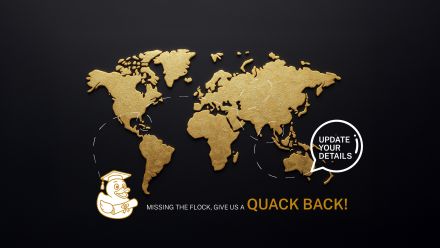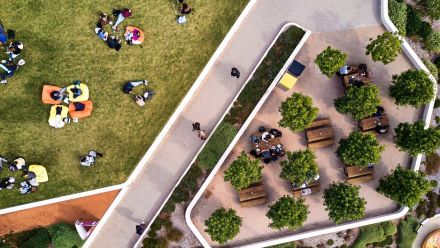Top honour for Indigenous ANU researcher
Mayi Kuwayu could help to decolonise the Indigenous health narrative by supporting the self-determination of Indigenous communities.
A thesis by ANU researcher Sarah Bourke on the progress of a study that aims to give Indigenous Australians a voice on their health and wellbeing has won the 2021 Stanner Award.
The award from the Australian Institute of Aboriginal and Torres Strait Islander Studies (AIATSIS) is awarded every two years to recognise, support and promote the best research work by Indigenous academics.
Sarah is a descendant of the Gidja people from the Kimberley region in WA and the Gamilaroi people on the border of New South Wales and Queensland.
Her doctoral thesis used an Indigenist research framework to examine the historical, social, and political factors that influenced the development of the Mayi Kuwayu National Study of Aboriginal and Torres Strait Islander Wellbeing and its emphasis on measuring cultural determinants of health.
A panel of independent judges assessed Sarah's thesis, 'Making Cultures Count: Transforming Indigenous Health Data in Australia', as the best academic manuscript submitted, ahead of three others that were shortlisted.
The Mayi Kuwayu Study has the potential to become an effective communication tool within and between Indigenous communities, and between Indigenous groups and non-Indigenous health systems and government organisations, by identifying cultural determinants of health, Sarah says.
"Mayi Kuwayu could help to decolonise the Indigenous health narrative by supporting the self-determination of Indigenous communities," she says.
Sarah submitted her thesis for the Stanner Award because she thought that the story behind the Mayi Kuwayu Study needed to be told.
"Having my thesis published by Aboriginal Studies Press will mean that a wider audience can learn how Aboriginal and Torres Strait Islander people do research our way for the benefit of our communities," she says.
Sarah acknowledges the support she has received at ANU to help her through the thesis journey along the way.
"The Tjabal Centre was a home away from home for me, and I have made sure to keep in touch with people I met there during my studies," she says.
Since November 2020, after finishing her DPhil, Sarah has been employed as an Indigenous Research Fellow at the National Centre of Epidemiology and Population Health at ANU to continue her work on Aboriginal and Torres Strait Islander health and wellbeing.
"At the moment I am working remotely from North Wales in the UK, but I will be returning to my hometown of Canberra in November and I really look forward to re-connecting fully with the ANU community," Sarah says.
As part of the award, she will receive a glass sculpture by celebrated artist Jenni Kemarre Martiniello, $5000 in prize money, and mentoring and editorial support to prepare the manuscript for publication by Aboriginal Studies Press, the publishing arm of AIATSIS.
The Stanner Award acknowledges the significant contribution of the late Emeritus Professor William Edward Hanley (Bill) Stanner to the establishment and development of AIATSIS.


